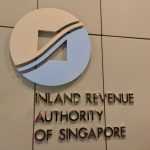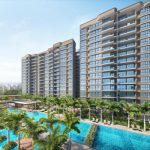Did you know that nationals or Permanent Residents of five countries buying residential properties in Singapore are accorded the same Stamp Duty treatment as Singapore Citizens?

In 15 Dec 2021, the Government announced that ABSD rates will be raised with effect from 16 Dec 2021, as part of a package of measures to cool the private residential and HDB resale markets. But the nationals from these five countries, just like Singapore citizens, are exempt from the current rate of the Additional Buyer’s Stamp Duty (ABSD) levied on foreigners when they purchase residential properties. The ABSD for foreigners in Singapore is 30%.
For Singapore Citizens, as far as Stamp Duty treatment is concerned, there is no ABSD on their first residential property.
Table of Contents
What is ABSD?
ABSD is a property tax that’s levied on top of Buyer’s Stamp Duty (a tax that property buyers have to pay when they buy a property), and it’s computed based on the valuation or the selling price of the property, whichever is higher. Liable buyers are required to pay ABSD on top of the existing Buyer’s Stamp Duty (BSD). ABSD and BSD are computed on the purchase price as stated in the dutiable document or the market value of the property (whichever is the higher amount).
How Do You Calculate ABSD?
For instance, say if a property is valued at $1 million but the selling price is $1.1 million. Assuming that you’re subjected to 12% ABSD, the ABSD amount that you’ll need to pay is $1.1 million X 12% = $132,000.
Who Needs to Pay ABSD?
ABSD applies to the following group of buyers:
- Singapore Citizens: ABSD will be levied on the second (17%) and subsequent (25%) property purchases
- Singapore Permanent Residents (PRs): ABSD will be levied on all purchases. The first purchase will be 5% while the second purchase will be 25%, and third and subsequent purchases will be 30%.
- Foreigners: 30% ABSD for any property purchase
- Entities (companies or associations): 35% for each property (plus additional 5% non-remittable ABSD for developers)

As a result of Free Trade Agreements signed by the Singapore Government, nationals and permanent residents of these five countries are accorded the same property Stamp Duty treatment as Singapore Citizens. The Free Trade Agreements signed with the United States of America and the European Free Trade Association (EFTA), provides these exemptions to the residents of these countries.
Those who are able to enjoy this remission of ABSD are:
- Nationals of the United States of America; and
- Nationals and Permanent Residents of Iceland, Liechtenstein, Norway or Switzerland
This means that if you are a citizen of Iceland, Liechtenstein, Norway, Switzerland or United States of America, instead of paying an additional 30% for the ABSD, you do not need to pay any ABSD at all on your first residential property purchase in Singapore. And the ABSD would be 17% for your second residential property and 25% for your third and subsequent properties.
This applies to only private non-landed residential properties, as foreigners are not allowed to purchase and own land in Singapore with the only exception being the luxurious water-front bungalows on Sentosa Cove.
Foreign investors who are eligible can submit an application of remission through their legal representative who can manage their stump duty treatment and transactions with the Inland Revenue Authority of Singapore (IRAS) on your behalf.
The ABSD liability will depend on the profile of the buyer as at the date of purchase or acquisition of the residential property:
A. Whether the buyer is an individual or an entity
B. The profile of the buyer and
C. The count of residential properties owned by the buyer
Is the Buyer an Individual or an Entity matters for Stamp Duty treatment
An entity means a person who is not an individual. It includes the following:
- An unincorporated association
- A trustee for a collective investment scheme when acting in that capacity
- A trustee-manager for a business trust when acting in that capacity
- The partners of the partnership whether or not any of them is an individual, where the property conveyed, transferred or assigned is to be held as partnership property
If a property is jointly purchased by buyers of different profiles, the profile with the highest ABSD rate will apply on the entire value purchased.
If A purchases a residential property to be held on trust for the beneficial owner B, ABSD is charged based on the profile of the beneficial owner, B.
Profile of the Buyer
The applicable ABSD rate is based on the profile of the buyer on the date of purchase. You must have been granted the Singapore Citizenship status or Singapore Permanent Resident status by the Immigration and Checkpoint Authority (ICA) as at the date of property purchase in order to enjoy lower ABSD liability. The date of issue reflected in the IC collection slip would be taken as when the status was granted.
When must ABSD and BSD be paid?
BSD and ABSD must be paid within 14 days after the date of the signed Contract or Agreement. Where the Contract or Agreement is executed (signed) overseas, BSD and ABSD must be paid within 30 days after the receipt of the Contract or Agreement in Singapore. A document is considered to be duly stamped only when stamp duty is fully paid. Audit checks will be conducted by IRAS to ensure that BSD and ABSD are duly paid. Under the Stamp Duties Act, a penalty of 4 times the amount of unpaid duty can be imposed.
Can you defer the payment of Stamp Duty?
Stamp duty is an upfront cost that a buyer has to consciously set aside when he decides to purchase a property. It must be paid in full and cannot be deferred. Inadequate payment or late payment of stamp duty is tantamount to non-stamping and penalties would apply.
ASBD was first introduced in December 2011 as a “cooling measure” to discourage foreigners and entities from purchasing residential properties, especially multiple properties. The latest round of cooling measures took effect on 16 December. Aside from tightened loan limits which saw the Loan-to-Value (LTV) limit for HDB-granted loans dip from 90% to 85% and Total Debt Servicing Ratio (TDSR) threshold tightening, dropping from 60% to 55%, ABSD rates were adjusted.






